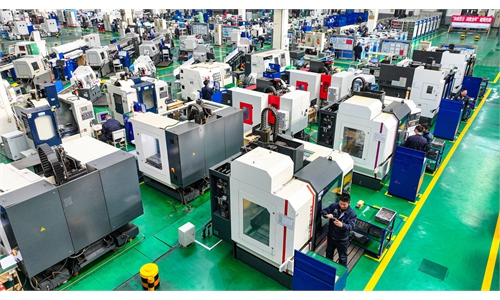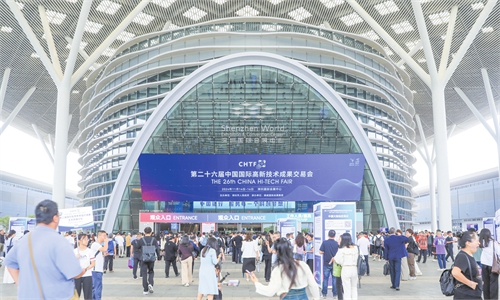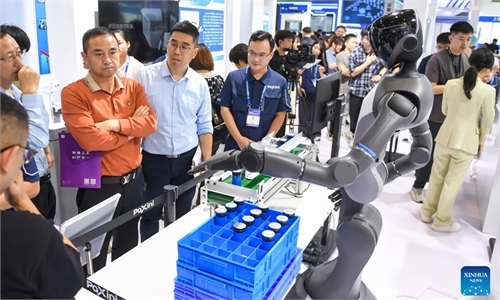
AI Photo:VCG
Some Chinese provinces and cities have intensified their efforts to introduce action plans to boost the development of artificial intelligence (AI) industry from various aspects, including underlying technologies, infrastructure and market applications.
An executive meeting of the municipal government of East China's Shanghai Municipality on Monday agreed an action plan on the city's development of AI-empowered large language models (LLMs), vowing to build a sound industrial ecosystem to jointly boost "AI+" industrial innovation.
Southwest China's Sichuan Province has also released an action plan on promoting the development of the AI industrial chain between 2024-27, aiming to build over 10 nationally-influential LLMs by 2027 and raise the number of AI tech firms to over 2,000, according to a report on local government website on Monday.
In November, the Beijing Economic-Technological Development Area announced a raft of policies to build the area into a highland for AI industries, striving for an AI industry size of more than 100 billion yuan ($13.77 billion).
LLMs have gained widespread adoption across numerous industries due to their increasing practicality and user-friendliness. Taking the burgeoning e-commerce sector as an example, Wu Bin, CEO of Infimind, a Beijing-based AI technology solutions provider in the fashion and e-commerce industry, told the Global Times on Thursday that the company's generative AI tools have been used in driving e-commerce sales.
As the e-commerce industry continues to grow and evolve, the demand for AI-driven marketing solutions is on the rise, Wu said, adding that with the cutting-edge AI-generated content products and services, the company has dedicated to helping online retailers thrive in the competitive e-commerce landscape.
Leading Chinese AI company Baidu said in a note sent to the Global Times that the company's Wenxin Intelligent Agent Platform has attracted 150,000 enterprises and 800,000 developers, covering more than 30 application areas. Baidu is focused on leveraging AI to deliver substantial business value across industries.
"We hope that LLMs can truly become new quality productive forces through our intelligent agents, influencing all aspects of our work and life," said the note.
There are more than 4,400 AI firms in China, with the core industry scale reaching 500 billion yuan. AI has become an important driving force and strategic technology for a new round of technological revolution and industrial transformation, according to a report released at this year's World Intelligence Expo held in June.
"Since 2022, the development of AI in China has entered the stage of artificial general intelligence that is led by LLMs, giving a strong boost to the whole economy," Liu Gang, chief economist at the Chinese Institute of New Generation AI Development Strategies, told the Global Times.
AI has not only contributed to the transformation and upgrading of traditional industries but also boosted the development of emerging industries. As a result, the technology empowers China's manufacturing and helps improve the economic structure, contributing to the country's economic transition to compact development from an extensive development model previously, he said.



